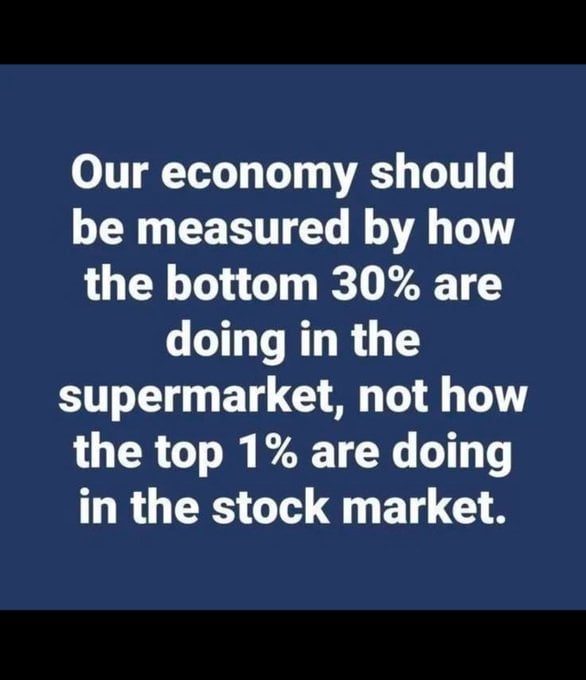Late Stage Capitalism
A place for for news, discussion, memes, and links criticizing capitalism and advancing viewpoints that challenge liberal capitalist ideology. That means any support for any liberal capitalist political party (like the Democrats) is strictly prohibited.
A zero-tolerance policy for bigotry of any kind. Failure to respect this will result in a ban.
RULES:
1 Understand the left starts at anti-capitalism.
2 No Trolling
3 No capitalist apologia, anti-socialism, or liberalism, liberalism is in direct conflict with the left. Support for capitalism or for the parties or ideologies that uphold it are not welcome or tolerated.
4 No imperialism, conservatism, reactionism or Zionism, lessor evil rhetoric. Dismissing 3rd party votes or 'wasted votes on 3rd party' is lessor evil rhetoric.
5 No bigotry, no racism, sexism, antisemitism, homophobia, transphobia, ableism, or any type of prejudice.
6 Be civil in comments and no accusations of being a bot, 'paid by Putin,' Tankie, etc.
view the rest of the comments

I'm a lay person, too, so I can't help much with detailed references. My understanding is that PPP is intended for cross-country comparisons (i.e., purchasing power in one region/country compared with that in another). Purchasing power indices more generally measure the (real) value of someone's wages (after deducting regular expenses like rent, insurance etc.) for purchasing certain goods (e.g., a standardized "basket of goods").
To find information for your country, you could check your national statistics agencies to see if they provide data on such indices. Real wages are one example that you can probably find, although they don't adjust for cost of living expenses (but they typically do adjust for inflation).
Per capita & country:
https://en.m.wikipedia.org/wiki/List_of_countries_by_GDP_(PPP)_per_capita